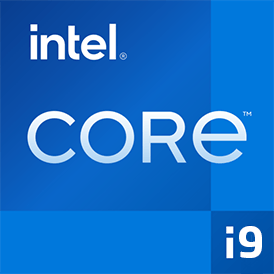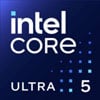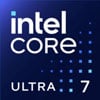
Intel Core i9-11900K Benchmark, Test and specs
Last updated:
The Intel Core i9-11900K was released in Q1/2021 and has 8 cores. The processor can process 16 threads simultaneously and uses a mainboard with the socket LGA 1200. In the Geekbench 5 benchmark, the Intel Core i9-11900K achieved a result of 1,878 points (single-core) or 11,645 points (multi-core).

| Name: | Intel Core i9-11900K |
|---|---|
| Family: | Intel Core i9 (78) |
| CPU group: | Intel Core i 11000 (22) |
| Architecture: | Rocket Lake S |
| Segment: | Desktop / Server |
| Generation: | 11 |
| Predecessor: | Intel Core i9-10900K |
| Successor: | Intel Core i9-12900K |
CPU Cores and Base Frequency
The Intel Core i9-11900K has 8 cores. The clock frequency of the Intel Core i9-11900K is 3.50 GHz (5.30 GHz). An initial performance assessment can be made using the number of CPU cores.
| CPU Cores / Threads: | 8 / 16 |
|---|---|
| Core architecture: | normal |
| Cores: | 8x Cypress Cove |
| Hyperthreading / SMT: | Yes |
|---|---|
| Overclocking: | Yes |
| Frequency: | 3.50 GHz |
| Turbo Frequency (1 Core): | 5.30 GHz |
| Turbo Frequency (8 Cores): | 4.80 GHz |
Internal Graphics
The Intel Core i9-11900K has an integrated graphics that the system can use to efficiently play back videos. The Intel Core i9-11900K has the Intel UHD Graphics 750 installed, which has 32 streaming multiprocessors (256 shaders).
| GPU name: | Intel UHD Graphics 750 |
|---|---|
| GPU frequency: | 0.35 GHz |
| GPU (Turbo): | 1.30 GHz |
| Compute units: | 32 |
| Shader: | 256 |
| Hardware Raytracing: | No |
| Release date: | Q1/2021 |
| Max. displays: | 3 |
|---|---|
| Generation: | 12 |
| Direct X: | 12 |
| Technology: | 14 nm |
| Max. GPU Memory: | 64 GB |
| Frame Generation: | No |
Hardware codec support
Processors with integrated graphics can process video codecs faster. Support for modern codecs can significantly increase system efficiency during video playback.
| h265 / HEVC (8 bit): | Decode / Encode |
|---|---|
| h265 / HEVC (10 bit): | Decode / Encode |
| h264: | Decode / Encode |
| VP8: | Decode |
| VP9: | Decode / Encode |
| AV1: | Decode |
|---|---|
| AVC: | Decode / Encode |
| VC-1: | Decode |
| JPEG: | Decode / Encode |
Memory & PCIeThe Intel Core i9-11900K supports a maximum of 128 GB memory. Depending on the mainboard, the processor can use a maximum of 2 (Dual Channel) memory channels. This results in a maximum bandwidth of the main memory of 51.2 GB/s. |
|
| Memory type: | Memory bandwidth: |
|---|---|
| DDR4-3200 | 51.2 GB/s |
| Max. Memory: | 128 GB |
| Memory channels: | 2 (Dual Channel) |
| ECC: | No |
| PCIe: | 4.0 x 20 |
| PCIe Bandwidth: | 39.4 GB/s |
Thermal ManagementThe Intel Core i9-11900K has a TDP of 125 W. Based on the TDP, the system manufacturer can and must adapt the cooling solution to the processor. |
|
|---|---|
| TDP (PL1 / PBP): | 125 W |
| TDP (PL2): | 251 W / 56 s |
| TDP up: | -- |
| TDP down: | 95 W |
| Tjunction max.: | 100 °C |
Technical details
Modern production reduces the waste heat of a processor and increases its efficiency. The Intel Core i9-11900K is made in 14 nm and has 20.00 MB cache.
| Technology: | 14 nm |
|---|---|
| Chip design: | Monolithic |
| Socket: | LGA 1200 |
| L2-Cache: | 4.00 MB |
| L3-Cache: | 16.00 MB |
| AES-NI: | Yes |
| Operating systems: | Windows 10, Windows 11, Linux |
| Virtualization: | VT-x, VT-x EPT, VT-d |
|---|---|
| Instruction set (ISA): | x86-64 (64 bit) |
| ISA extensions: | SSE4.1, SSE4.2, AVX2, AVX-512 |
| Release date: | Q1/2021 |
| Release price: | 539 $ |
| Part Number: | -- |
| Documents: | Technical data sheet |
Rate this processor
Benchmark results

The benchmark results for the Intel Core i9-11900K have been carefully checked by us. We only publish benchmark results that have been created by us or that have been submitted by a visitor and then checked by a team member. All results are based on and fullfill our benchmark guidelines.
Cinebench R23 (Single-Core)
Cinebench R23 is the successor of Cinebench R20 and is also based on the Cinema 4 Suite. Cinema 4 is a worldwide used software to create 3D forms. The single-core test only uses one CPU core, the amount of cores or hyperthreading ability doesn't count.

|
Intel Core Ultra 5 125H
14C 18T @ 4.50 GHz |
||

|
Intel Core i5-1240P
12C 16T @ 4.40 GHz |
||

|
Intel Core i5-1250P
12C 16T @ 4.40 GHz |
||
|
|
Intel Core i9-11900K
8C 16T @ 5.30 GHz |
||

|
Intel Core i9-11900KF
8C 16T @ 5.30 GHz |
||

|
Intel Core i3-1220P
10C 12T @ 4.40 GHz |
||

|
AMD Ryzen 9 6980HS
8C 16T @ 5.00 GHz |
||
Cinebench R23 (Multi-Core)
Cinebench R23 is the successor of Cinebench R20 and is also based on the Cinema 4 Suite. Cinema 4 is a worldwide used software to create 3D forms. The multi-core test involves all CPU cores and taks a big advantage of hyperthreading.

|
Intel Core i5-13490F
10C 16T @ 4.20 GHz |
||

|
AMD Ryzen 9 3900
12C 24T @ 3.10 GHz |
||

|
Intel Core i9-12900H
14C 20T @ 3.80 GHz |
||
|
|
Intel Core i9-11900K
8C 16T @ 4.80 GHz |
||

|
Intel Core i9-11900KF
8C 16T @ 4.80 GHz |
||

|
Intel Core i5-14400F
10C 16T @ 2.50 GHz |
||

|
Intel Core i5-14400
10C 16T @ 2.50 GHz |
||
Geekbench 5, 64bit (Single-Core)
Geekbench 5 is a cross plattform benchmark that heavily uses the systems memory. A fast memory will push the result a lot. The single-core test only uses one CPU core, the amount of cores or hyperthreading ability doesn't count.

|
Intel Core i7-13800HE
14C 20T @ 5.00 GHz |
||

|
Apple A16 Bionic
6C 6T @ 3.46 GHz |
||

|
Intel Core i7-13700HX
16C 24T @ 5.00 GHz |
||
|
|
Intel Core i9-11900K
8C 16T @ 5.30 GHz |
||

|
Intel Core i9-12900T
16C 24T @ 4.90 GHz |
||

|
Intel Core i7-11700B
8C 16T @ 5.30 GHz |
||

|
Intel Core i9-11900KB
8C 16T @ 5.30 GHz |
||
Geekbench 5, 64bit (Multi-Core)
Geekbench 5 is a cross plattform benchmark that heavily uses the systems memory. A fast memory will push the result a lot. The multi-core test involves all CPU cores and taks a big advantage of hyperthreading.

|
Intel Xeon Silver 4310
12C 24T @ 2.10 GHz |
||

|
Intel Core i7-12700
12C 20T @ 4.00 GHz |
||

|
Intel Core i7-12700F
12C 20T @ 4.00 GHz |
||
|
|
Intel Core i9-11900K
8C 16T @ 4.80 GHz |
||

|
Intel Core i9-11900KF
8C 16T @ 4.80 GHz |
||

|
Intel Xeon Gold 6132
14C 28T @ 2.90 GHz |
||

|
Intel Xeon Gold 6146
12C 24T @ 3.60 GHz |
||
Geekbench 6 (Single-Core)
Geekbench 6 is a benchmark for modern computers, notebooks and smartphones. What is new is an optimized utilization of newer CPU architectures, e.g. based on the big.LITTLE concept and combining CPU cores of different sizes. The single-core benchmark only evaluates the performance of the fastest CPU core, the number of CPU cores in a processor is irrelevant here.

|
Intel Core i3-14100
4C 8T @ 4.70 GHz |
||

|
Intel Core i7-12700
12C 20T @ 4.90 GHz |
||

|
Intel Core i7-12700F
12C 20T @ 4.90 GHz |
||
|
|
Intel Core i9-11900K
8C 16T @ 5.30 GHz |
||

|
Intel Core i5-13600
14C 20T @ 5.00 GHz |
||

|
Intel Core i9-12900TE
16C 24T @ 4.80 GHz |
||

|
AMD Ryzen 5 PRO 8645HS
6C 12T @ 5.00 GHz |
||
Geekbench 6 (Multi-Core)
Geekbench 6 is a benchmark for modern computers, notebooks and smartphones. What is new is an optimized utilization of newer CPU architectures, e.g. based on the big.LITTLE concept and combining CPU cores of different sizes. The multi-core benchmark evaluates the performance of all of the processor's CPU cores. Virtual thread improvements such as AMD SMT or Intel's Hyper-Threading have a positive impact on the benchmark result.

|
Intel Core i5-14500T
14C 20T @ 1.70 GHz |
||

|
Intel Core Ultra 7 155H
16C 22T @ 4.20 GHz |
||

|
AMD Ryzen 5 7600X
6C 12T @ 5.30 GHz |
||
|
|
Intel Core i9-11900K
8C 16T @ 4.80 GHz |
||

|
Intel Core i5-13500HX
14C 20T @ 4.10 GHz |
||

|
AMD Ryzen 9 5900X
12C 24T @ 4.50 GHz |
||

|
AMD EPYC 7402
24C 48T @ 3.20 GHz |
||
Cinebench R20 (Single-Core)
Cinebench R20 is the successor of Cinebench R15 and is also based on the Cinema 4 Suite. Cinema 4 is a worldwide used software to create 3D forms. The single-core test only uses one CPU core, the amount of cores or hyperthreading ability doesn't count.

|
Intel Core i5-12400
6C 12T @ 4.40 GHz |
||

|
Intel Core i5-12400F
6C 12T @ 4.40 GHz |
||

|
Intel Core i5-1335U
10C 12T @ 4.60 GHz |
||
|
|
Intel Core i9-11900K
8C 16T @ 5.30 GHz |
||

|
Intel Core i9-11900KF
8C 16T @ 5.30 GHz |
||

|
Intel Core i7-1255U
10C 12T @ 4.70 GHz |
||

|
AMD Ryzen 9 6980HS
8C 16T @ 5.00 GHz |
||
Cinebench R20 (Multi-Core)
Cinebench R20 is the successor of Cinebench R15 and is also based on the Cinema 4 Suite. Cinema 4 is a worldwide used software to create 3D forms. The multi-core test involves all CPU cores and taks a big advantage of hyperthreading.

|
Intel Xeon Gold 6148
20C 40T @ 3.00 GHz |
||

|
Intel Core i9-10850K
10C 20T @ 4.80 GHz |
||

|
Apple M3 Max (16-CPU 40-GPU)
16C 16T @ 3.60 GHz |
||
|
|
Intel Core i9-11900K
8C 16T @ 4.80 GHz |
||

|
Intel Core i9-11900KF
8C 16T @ 4.80 GHz |
||

|
Intel Core i5-13400F
10C 16T @ 3.90 GHz |
||

|
Intel Core i5-13400
10C 16T @ 4.10 GHz |
||
iGPU - FP32 Performance (Single-precision GFLOPS)
The theoretical computing performance of the internal graphics unit of the processor with simple accuracy (32 bit) in GFLOPS. GFLOPS indicates how many billion floating point operations the iGPU can perform per second.

|
Apple A13 Bionic
Apple A13 @ 1.35 GHz |
||

|
Intel Xeon W-11865MRE
Intel UHD Graphics 11th Gen (32 EU) @ 1.35 GHz |
||

|
Intel Xeon W-10885M
Intel UHD Graphics 10th Gen (32 EU) @ 1.25 GHz |
||
|
|
Intel Core i9-11900K
Intel UHD Graphics 750 @ 1.30 GHz |
||

|
Intel Xeon E-2388G
Intel UHD Graphics P750 @ 1.30 GHz |
||

|
Intel Xeon E-2378G
Intel UHD Graphics P750 @ 1.30 GHz |
||

|
Intel Xeon E-2374G
Intel UHD Graphics P750 @ 1.30 GHz |
||
Blender 3.1 Benchmark
In the Blender Benchmark 3.1, the scenes "monster", "junkshop" and "classroom" are rendered and the time required by the system is measured. In our benchmark we test the CPU and not the graphics card. Blender 3.1 was presented as a standalone version in March 2022.

|
Intel Core i5-12600K
10C 16T @ 4.50 GHz |
||

|
Intel Core i5-12600KF
10C 16T @ 4.50 GHz |
||

|
AMD Ryzen 7 5800X3D
8C 16T @ 4.20 GHz |
||
|
|
Intel Core i9-11900K
8C 16T @ 4.80 GHz |
||

|
Intel Core i9-11900KF
8C 16T @ 4.80 GHz |
||

|
Intel Core i9-10900KF
10C 20T @ 4.90 GHz |
||

|
Intel Core i9-10900K
10C 20T @ 4.90 GHz |
||
Estimated results for PassMark CPU Mark
Some of the CPUs listed below have been benchmarked by CPU-monkey. However the majority of CPUs have not been tested and the results have been estimated by a CPU-monkey’s secret proprietary formula. As such they do not accurately reflect the actual Passmark CPU mark values and are not endorsed by PassMark Software Pty Ltd.

|
Intel Xeon Gold 6150
18C 36T @ 3.20 GHz |
||

|
AMD EPYC 7351P
16C 32T @ 2.90 GHz |
||

|
Intel Xeon W-1390P
8C 16T @ 4.50 GHz |
||
|
|
Intel Core i9-11900K
8C 16T @ 4.80 GHz |
||

|
Intel Core i9-11900KF
8C 16T @ 4.80 GHz |
||

|
AMD Ryzen 7 7840U
8C 16T @ 3.30 GHz |
||

|
Intel Core i9-9920X
12C 24T @ 4.30 GHz |
||
CPU-Z Benchmark 17 (Single-Core)
The CPU-Z benchmark measures a processor's performance by measuring the time it takes the system to complete all benchmark calculations. The faster the benchmark is completed, the higher the score.

|
Intel Core i3-14100
4C 8T @ 3.50 GHz |
||

|
Intel Core i3-14100F
4C 8T @ 3.50 GHz |
||

|
Intel Core i5-12490F
6C 12T @ 4.20 GHz |
||
|
|
Intel Core i9-11900K
8C 16T @ 4.80 GHz |
||

|
Intel Core i5-13400F
10C 16T @ 3.90 GHz |
||

|
Intel Core i5-13400
10C 16T @ 4.10 GHz |
||

|
AMD Ryzen 9 5950X
16C 32T @ 4.20 GHz |
||
CPU-Z Benchmark 17 (Multi-Core)
The CPU-Z benchmark measures a processor's performance by measuring the time it takes the system to complete all benchmark calculations. The faster the benchmark is completed, the higher the score.

|
Intel Core i5-14400
10C 16T @ 2.50 GHz |
||

|
Intel Core i5-14400F
10C 16T @ 2.50 GHz |
||

|
AMD Ryzen 7 5800X
8C 16T @ 3.80 GHz |
||
|
|
Intel Core i9-11900K
8C 16T @ 3.50 GHz |
||

|
Intel Core i9-9920X
12C 24T @ 3.50 GHz |
||

|
Intel Core i9-11900KF
8C 16T @ 3.50 GHz |
||

|
AMD Ryzen 7 5800
8C 16T @ 3.40 GHz |
||
Cinebench R15 (Single-Core)
Cinebench R15 is the successor of Cinebench 11.5 and is also based on the Cinema 4 Suite. Cinema 4 is a worldwide used software to create 3D forms. The single-core test only uses one CPU core, the amount of cores or hyperthreading ability doesn't count.

|
AMD Ryzen 7 5800X
8C 16T @ 4.70 GHz |
||

|
Apple M3 Max (16-CPU 40-GPU)
16C 16T @ 4.06 GHz |
||

|
Intel Core i7-1280P
14C 20T @ 4.80 GHz |
||
|
|
Intel Core i9-11900K
8C 16T @ 5.30 GHz |
||

|
Intel Core i9-11900KF
8C 16T @ 5.30 GHz |
||

|
Intel Core i7-12700
12C 20T @ 4.90 GHz |
||

|
Intel Xeon w9-3495X
56C 112T @ 4.80 GHz |
||
Cinebench R15 (Multi-Core)
Cinebench R15 is the successor of Cinebench 11.5 and is also based on the Cinema 4 Suite. Cinema 4 is a worldwide used software to create 3D forms. The multi-core test involves all CPU cores and taks a big advantage of hyperthreading.

|
Intel Xeon E5-2698 v3
16C 32T @ 3.00 GHz |
||

|
Intel Core i9-10900
10C 20T @ 4.60 GHz |
||

|
Intel Core i9-10900F
10C 20T @ 4.60 GHz |
||
|
|
Intel Core i9-11900K
8C 16T @ 4.80 GHz |
||

|
Intel Core i9-11900KF
8C 16T @ 4.80 GHz |
||

|
AMD Ryzen 5 7600X
6C 12T @ 5.30 GHz |
||

|
Intel Xeon W-2170B
14C 28T @ 3.60 GHz |
||
Benchmarks

Cinebench R23 (SC)
586 entries
586 entries

Cinebench R23 (MC)
565 entries
565 entries

Geekbench 5 (SC)
2,488 entries
2,488 entries

Geekbench 5 (MC)
2,461 entries
2,461 entries

Geekbench 6 (SC)
1,755 entries
1,755 entries

Geekbench 6 (MC)
1,703 entries
1,703 entries

Cinebench R20 (SC)
656 entries
656 entries

Cinebench R20 (MC)
604 entries
604 entries

FP32 SP (iGPU)
2,042 entries
2,042 entries

3DMark Timespy (iGPU)
516 entries
516 entries

Blender 3.1 Benchmark
212 entries
212 entries

PassMark CPU-Mark
2,392 entries
2,392 entries

CPU-Z Benchmark 17 (SC)
231 entries
231 entries

CPU-Z Benchmark 17 (MC)
733 entries
733 entries

Monero Hashrate
94 entries
94 entries

V-Ray CPU-Render
249 entries
249 entries

Cinebench R15 (SC)
1,106 entries
1,106 entries

Cinebench R15 (MC)
1,101 entries
1,101 entries
Description of the processor
The Intel Core i9-11900K is an 8-core processor, so it has 2 CPU cores less than its direct predecessor, the Intel Core i9-10900K. Intel has given the Intel Core i9-11900K a new architecture so that it is hardly slower (and even faster in some situations such as single-core load).The base frequency of the processor is 3.5 GHz. When only one CPU core is loaded, the Intel Core i9-11900K can increase the frequency up to 5.3 GHz. 4.8 GHz is still possible if several cores are used to full capacity.
"Rocket Lake" is a backport on Intels old 14 nm production line. Actually, the architecture was developed for the 10 nm production. However, Intel still does not have enough capacity in the 10 nm lines, so that the desktop processors will still be manufactured in 14 nm in 2021. AMD has arrived at 7 nm, Apple with the M1 even at 5 nm. Nevertheless, Intel has its 14 nm production very well under control, which is also shown by the high clock frequencies of the Intel Core i9-11900K. Only the efficiency suffers a lot from the rough production.
In contrast, the Intel Core i9-11900K does surprisingly well in benchmarks and can compete with AMD and Apple under load on just one CPU core. In multi-core load scenarios, however, the processor has to admit defeat by AMDs 12 and 16 core processors.
The new desktop processors are finally allowed to use new iGPUs. The Intel XE graphics is a completely new development and has little in common with the old Intel UHD graphics cores. The iGPU is, however, pretty much reduced in the desktop processors from Intel, since Intel strongly limits the number of execution units here. The iGPU is currently not suitable for games, even in the form of the Intel XE. The mobile processors of the "Tiger Lake" architecture have the same graphics, but they can use significantly more execution units.
Popular comparisons
back to index




